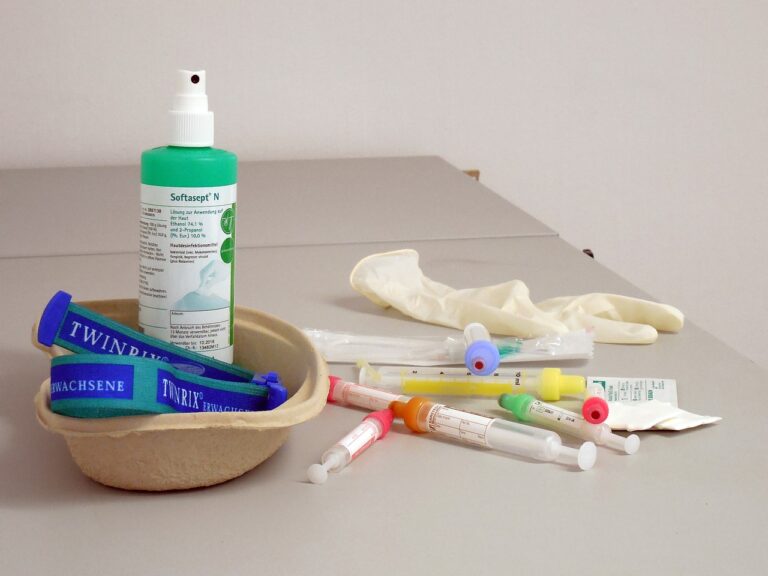Graduate Student Wellness Programs: Mental Health and Self-Care Resources
11xplay reddy login password, king 567, skyinplay live login: Graduate Student Wellness Programs: Mental Health and Self-Care Resources
As a graduate student, juggling academic responsibilities, research projects, teaching duties, and personal life can be overwhelming. It’s essential to prioritize your mental health and well-being to ensure that you can perform at your best. Many universities offer wellness programs specifically designed to support graduate students in managing stress, improving mental health, and practicing self-care. In this blog post, we’ll explore the mental health and self-care resources available to graduate students and how you can take advantage of them.
Counseling Services
One of the most crucial resources for graduate students is counseling services. Universities often have counseling centers staffed with mental health professionals who can provide individual therapy, group therapy, and crisis intervention. If you’re struggling with anxiety, depression, imposter syndrome, or any other mental health issue, don’t hesitate to reach out to your university’s counseling center. Therapy can be a valuable tool in managing stress and improving your overall well-being.
Workshops and Seminars
Many universities offer workshops and seminars on topics related to mental health and self-care. These events cover a wide range of topics, such as stress management, mindfulness, time management, and communication skills. Attending these workshops can provide you with valuable tools and strategies for coping with the demands of graduate school. Check your university’s events calendar or counseling center website for upcoming workshops that may be of interest to you.
Support Groups
Joining a support group can be incredibly beneficial for graduate students. Whether you’re dealing with academic stress, social isolation, or imposter syndrome, having a support system of peers who can relate to your experiences can make a significant difference in your mental health. Look for support groups specific to graduate students or consider starting your own group with classmates or friends. Sharing your struggles and successes with others can help you feel less alone and more supported.
Physical Activity
Exercise is a proven way to reduce stress, improve mood, and boost overall well-being. Many universities offer fitness facilities, group exercise classes, intramural sports, and outdoor recreation opportunities for students. Take advantage of these resources to incorporate physical activity into your routine. Whether you prefer yoga, running, weightlifting, or dance, finding a form of exercise that you enjoy can have a positive impact on your mental health.
Mindfulness Practices
Mindfulness practices, such as meditation, deep breathing, and body scans, can help you stay present, reduce anxiety, and improve focus. Many universities offer mindfulness workshops, meditation sessions, and online resources to support students in developing a mindfulness practice. Consider incorporating mindfulness techniques into your daily routine to cultivate a sense of calm and resilience during challenging times in graduate school.
Time Management and Productivity Tools
Managing your time effectively and staying organized are essential skills for graduate students. Utilize time management and productivity tools, such as digital calendars, to-do lists, task managers, and productivity apps, to stay on top of your assignments, research projects, and deadlines. Setting realistic goals, establishing priorities, and breaking tasks into smaller steps can help you manage your workload and reduce feelings of overwhelm.
FAQs
1. How do I know if I need counseling services?
If you’re experiencing persistent feelings of sadness, anxiety, hopelessness, or overwhelm, or if you’re having trouble functioning in your daily life, it may be helpful to seek counseling services. Consider reaching out to your university’s counseling center for an initial consultation to discuss your concerns and explore treatment options.
2. How can I balance graduate school and self-care?
Balancing graduate school responsibilities with self-care practices can be challenging but essential for your overall well-being. Prioritize self-care by setting aside time for activities that nourish your mind, body, and soul, such as exercise, hobbies, socializing, and relaxation. Remember that taking care of yourself is not selfish but necessary for your success in graduate school.
3. What if I’m not sure where to start with self-care?
If you’re unsure where to start with self-care, consider experimenting with different activities and practices to see what resonates with you. Start small by incorporating one self-care practice into your daily routine, such as taking a walk, reading a book, or listening to music. Pay attention to how these activities make you feel and adjust your self-care routine accordingly.
In conclusion, prioritizing your mental health and well-being as a graduate student is essential for your success and overall satisfaction with your academic experience. Take advantage of the mental health and self-care resources available to you through your university’s wellness programs to support yourself in managing stress, improving your mental health, and practicing self-care. Remember that seeking help is a sign of strength, not weakness, and that you deserve to prioritize your well-being during this challenging but rewarding time in your academic journey.







